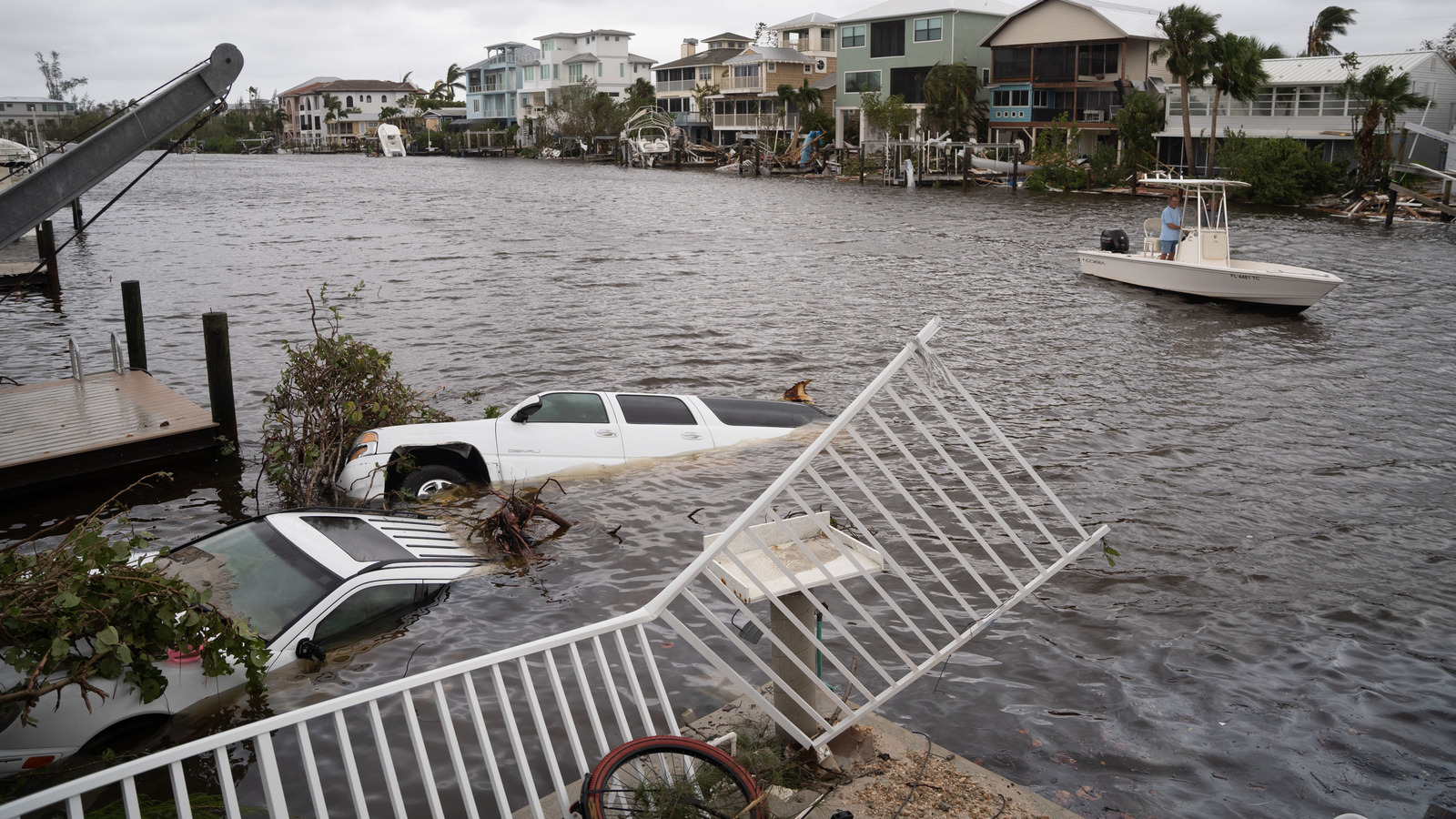Hurricane Ian Is A Grim Warning Of The Future

This hyper-speed cycling of a hurricane — hatching out in the ocean, blowing past tropical storm status, and surging in power right before landfall — has been happening practically annually since 2017, according to the National Weather Service, and is going to continue as warm ocean conditions continue. This new chapter of hurricanes drops more rain, since warmer environments can retain more moisture, and can bring rainfall thousands of miles inland.
Hurricane Florence, for instance, was forecasted to have 50% more rainfall than it would have had without global warming causing the abnormally warm waters in which it developed (via Inside Climate News). Sea levels being already higher than normal in coastal cities like Florida lend to higher storm surges and more flooding, too.
As the Woods Hole Oceanographic Institution (WHOI) explains, the heightened hurricane risk is because of unnaturally high temperatures in the Atlantic Ocean. This human-cause warming reaches beyond the surface, increasing the temperature of deeper waters. In normal conditions, colder waters rising from the depths are a natural defense against strengthening cyclones. With balmy water above and below, hurricanes are given the perfect conditions to exponentially grow more powerful in just a few hours, according to WHOI.
#Ian is forecast to make landfall in South Carolina as a #hurricane tomorrow. The most recent landfalling hurricane in South Carolina is Matthew (2016) & the most recent landfalling South Carolina hurricane that previously made landfall in Florida as a hurricane is Charley (2004) pic.twitter.com/S373ZOvL09
— Philip Klotzbach (@philklotzbach) September 29, 2022
Ian itself had graduated from a tropical storm to a hurricane in less than 24 hours. The best defense against these monumental storms, the Environmental Protection Agency (EPA) says, is continuing efforts to reduce heat-retaining pollution and to remain a united front against climate change.
For all the latest Games News Click Here
For the latest news and updates, follow us on Google News.
